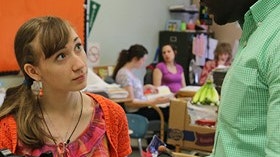Homepage
•
Learning Library
•
Blog
•
Liven up PD with a Digital Skills Workshop
Expand breadcrumbs
Expand breadcrumbs
- Learning Library
- Blog
- Liven up PD with a Digital Skills Workshop
- Homepage
- •
- Learning Library
- •
- Blog
- •
- Liven up PD with a Digital Skills Workshop
Liven up PD with a Digital Skills Workshop
By Ed Madison
January 23, 2015








